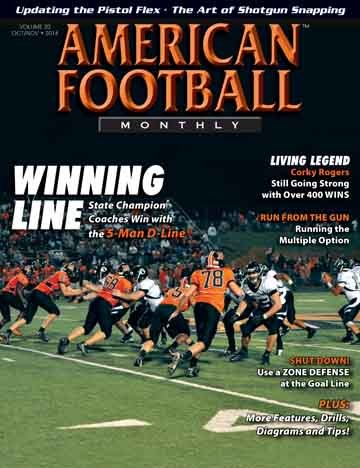Article CategoriesAFM Magazine
|
Safety First: Keeping Equipment Clean - In-Seasonby: Kristin BeerAssistant Football Manager - UCLA Football © More from this issue Football season is long and hard on equipment. It is the equipment managers’ job to maintain that equipment so that it can last all season. This includes repairing and cleaning the equipment on a regular basis. The number one goal of cleaning football equipment is killing the microbes that pose the biggest threat to athletes including MRSA, Staph, Meningitis, Strep, Athletes foot, HIV, Herpes, Hepatitis, mold and mildew. These microbes can keep a player out of play for days, weeks, months, years, or possibly endanger their life. Proper cleaning techniques can keep these microbes at bay and keep your athletes healthy. Cleaning helmets should be a weekly habit. Quick cleaning can be as simple as rinsing the whole helmet in the shower or sink in warm water and allow to dry. This helps with removal of normal grime. A more in-depth helmet cleaning consists of using a hypoallergenic germicidal cleaner, spraying the inside padding of the helmet, and completely wiping it out, making sure to get into all the cracks and crevices of the helmet. A good germicidal cleaner can be found at many stores. Make sure to wipe the entire cleaner out to ensure that no residues are left behind. Some helmets have removable and washable liners inside. Make sure to pull those out and wash in your normal washer and dryer to clean. This is also the time to be checking the padding inside the helmet and the exterior facemask and hardware for any worn or damaged parts and replace as needed. Most helmet companies also offer kits that are used to clean and disinfect interiors of helmets as well as the exterior. It’s always best to check with the manufacturers’ guidelines on cleaning and make sure that products you are using do not void out the warranty on the helmet. At the end of the season, it is best to send your helmets out to be reconditioned, to get recertified and to receive a good thorough cleaning. Spraying the outside of the pad with a hypoallergenic germicidal spray is the easiest and best way to keep shoulder pads clean and disinfected. There are other odor eliminator and disinfecting sprays available for sporting equipment. Research is needed to ensure the right spray is used for your specific situation and needs. The ultimate goal is to disinfect the pad and have it smell good. After the season, it is recommended to have your shoulder pads cleaned and/or reconditioned. Extremity pads such as thigh pads, hip pads, tailbone pads, and knee pads with plastic coverings simply need to be cleaned with a sponge and soapy water or a germicidal cleaner. Do not submerge as water can get in the plastic covering, cause mold, and rot out the interior padding. |
|
| HOME |
MAGAZINE |
SUBSCRIBE | ONLINE COLUMNISTS | COACHING VIDEOS |
Copyright 2026, AmericanFootballMonthly.com
All Rights Reserved




